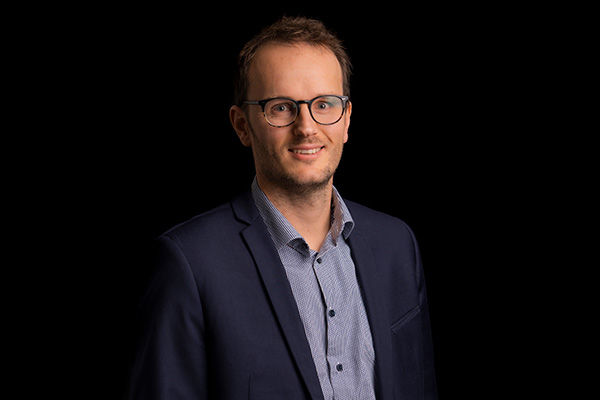Thomas Kjær Rasmussen
Research leader

Project title
MobiJoule: Human energy expenditure in mobility
What is your project about?
The project wants to clarify the relationship between energy expenditure and behaviour among cyclists. Cycling is defined by energy expenditure - we don't get anywhere on a bike without using energy. However, we do not know much about how energy expenditure affects our behaviour as cyclists, e.g., why some choose a route to avoid sweating, while others choose a detour or cycle faster to exercise more during the bike ride. The project addresses this shortcoming by developing a new type of model that includes energy expenditure in a consistent manner. The model type partly consists of a network model for describing energy expenditure and partly of a route choice model for describing behaviour. The result is a more realistic description of reality and easier interpretation. The models are estimated using unique data sources, and various scenario analyses are carried out, including e.g., an exploration of the potential in the scenario, where more people would use e-bikes.
How did you become interested in your particular field of research?
I have always been curious about mathematics and natural science, and when I completed a course in transport planning at university, it very much caught my interest. I think that transport systems are particularly interesting because of their complexity and by playing an important role for both individuals and society. In practice, route choice is something everyone, consciously or unconsciously, faces in their everyday life. Additionally, I find the research field interesting because it combines different disciplines including advanced mathematical theory, economics, behavioural theory and technology. Bicycle traffic is particularly interesting because it has a large unrealized potential, e.g., in terms effects on health, congestion, pollution and the urban environment.
What are the scientific challenges and perspectives in your project?
The currently existing models for description of cyclists' behaviour are typically direct adaptations of behavioural models originally developed for describing car traffic. These have a major shortcoming by not including energy expenditure, but typically focus on minimizing distance and travel time. This results in a poor understanding of cyclists' behaviour and causes limited realism of analyses. The consideration of energy expenditure is not straightforward. Hence, the project must develop i) completely new methods to describe individual energy expenditure on a complex infrastructure network, as well as ii) new behavioural models that manage to describe the influence of energy expenditure in a consistent way. If successful, it will lead to a considerably better understanding of cyclists’ behaviour, more realistic models and enable scenario analyses that are not possible with current models.
What is your estimate of the impact, which your project may have to society in the long term?
Cycling has many positive effects such as increased health, reduction in road congestion, improved urban environment and reduced emission of harmful particles. Thus, the potential is huge and is also increased by the growing availability of electric bicycles, which, via the need for lower human energy expenditure, enable cyclists to travel at higher speeds over longer distances. It is essential, however, that campaigns and investments in new infrastructure are planned and designed appropriately. This requires that cyclists' behaviour is better understood, and that travellers’ preferences is represented as good as possible in decision support tools. The purpose of my project is precisely to understand cyclists’ behaviour better and implement this in an operational model tool.
Which impact do you expect the Sapere Aude programme will have on your career as a researcher?
Participating in the Sapere Aude program is a great recognition. It gives me the opportunity to consolidate my research direction, expand my international research network, attract and train excellent younger researchers in my own research group and eventually attract additional research funding. We get the opportunity to go in depth and answer some very exciting scientific questions, which will also be of great benefit to society.
Background and personal life
I live in Roskilde with my wife and our two children aged six and eight years. Outside work, I spend my time with family and friends. I also spend a lot of time on and around Roskilde Fjord with sailing, cycling and running.
View all research leaders here
Research institution
Technical University of Denmark
Research field
Mathematical Modelling, transport systems
City of your current residence
Roskilde
High school
Aabenraa Gymnasium
